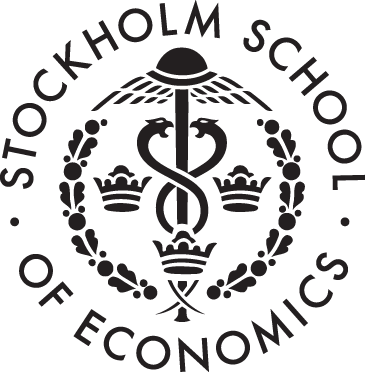Pressmeddelande -
New research reveals how Swedes react to government guidelines
How are Swedes changing their behavior during the COVID-19 crisis? A new research project from the Stockholm School of Economics offers insights into mobility and hoarding over the past – and coming – weeks and months.
The new research project, initiated by Professor Sara Rosengren and Assistant Professor Erik Wetter at the Stockholm School of Economics (SSE), combines data and insights from companies in sectors such as retail, telecom, and media in order to provide new insights into public behavioral dynamics. The main focus is on mobility, consumption, and hoarding behaviors e.g. bulk buying.
By collaborating with Swedish grocery chain Coop and mobile operator Telia, the researchers have been able to follow how the voluntary measures called for by Swedish authorities have changed the way Swedes behave when it comes to grocery purchases and mobility.
“Aggregated and de-identified customer data from private companies can provide rapid insights about behaviors in different segments of the public, not least in the age groups designated as high-risk and thus considered more vulnerable”, says Sara Rosengren.
Significant delays in following recommendations
Initial findings indicate that there is a significant delay to achieve government guidelines intended effects, but a much shorter lag to unintended consequences such as hoarding and bulk buying.
The data shows that consumers bought more groceries than usual between March 10 and March 19, following a statement by the Public Health Agency of Sweden highlighting a high risk of the novel coronavirus spreading domestically. This bulk-buying behavior was more prominent in Stockholm than in the rest of Sweden, with peak buying ocurring 48 hours after the announcement to slowly peter out after that.
On March 16, the Swedish government advised senior citizens to self-isolate and to apply strict social distancing measure. On March 17 they issued general recommendations about working from home if possible. However, analyses of mobile and retail data for Stockholm reveals that it took eight days until the measures had achieved halved mobility for both the population in general and for high risk seniors in particular.
Crucial to effective crisis management
The project highlights the public good value that private companies can provide in terms of high-resolution insights into public behaviors and responses to government guidelines during a public health crisis such as COVID-19.
“Understanding the timeline for intended and unintended effects of public announcements is crucial for effective crisis management”, says Erik Wetter.
Given that COVID-19 and the economic impacts are likely to persist for the rest of the year, the researchers are looking to continue and develop the research over the coming months data in collaboration with project partners, and are also looking to add additional companies to the project.
In a traditional research project work would happen for several weeks and months before sharing any results, but given the current situation the researchers see the value of sharing early outputs and will update the analyses continuously as the project progresses.
Project description
For more information, please contact:
Erik Wetter
Email: erik.wetter@hhs.se
Phone: +46-708-93 88 37
Sara Rosengren
Email: sara.rosengren@hhs.se
Phone: +46-704-97 00 40
Kategorier
- consumption
- psychology
- corona
- stockholm school of economics
- covid-19
- behavior
- data
- sweden
- economics
Handelshögskolan i Stockholm är den ledande handelshögskolan i Norden och Baltikum och har ett högt anseende i Sverige såväl som internationellt. Forskning i världsklass utgör grunden för våra utbildningar som består av kandidat-, master- och forskarutbildning, ett Executive Format MBA-program och ett stort utbud av executive education. Våra program är utvecklade i nära samarbete med både forskning och näringsliv, vilket ger våra studenter stora möjligheter att uppnå ledande positioner i företag och andra organisationer.
Handelshögskolan är ackrediterad av EQUIS, som garanterar att både undervisning och forskning håller högsta internationella standard. Handelshögskolan är också den enda svenska medlemmen i CEMS och PIM, som är samarbeten mellan ledande handelshögskolor i världen, vilket bidrar till den höga kvalitet som Handelshögskolan är känd för.
Stockholm School of Economics . Sveavägen 65 . Box 6501. SE-113 83 Stockholm . Sweden . Phone +46 8 736 90 00 . www.hhs.se
